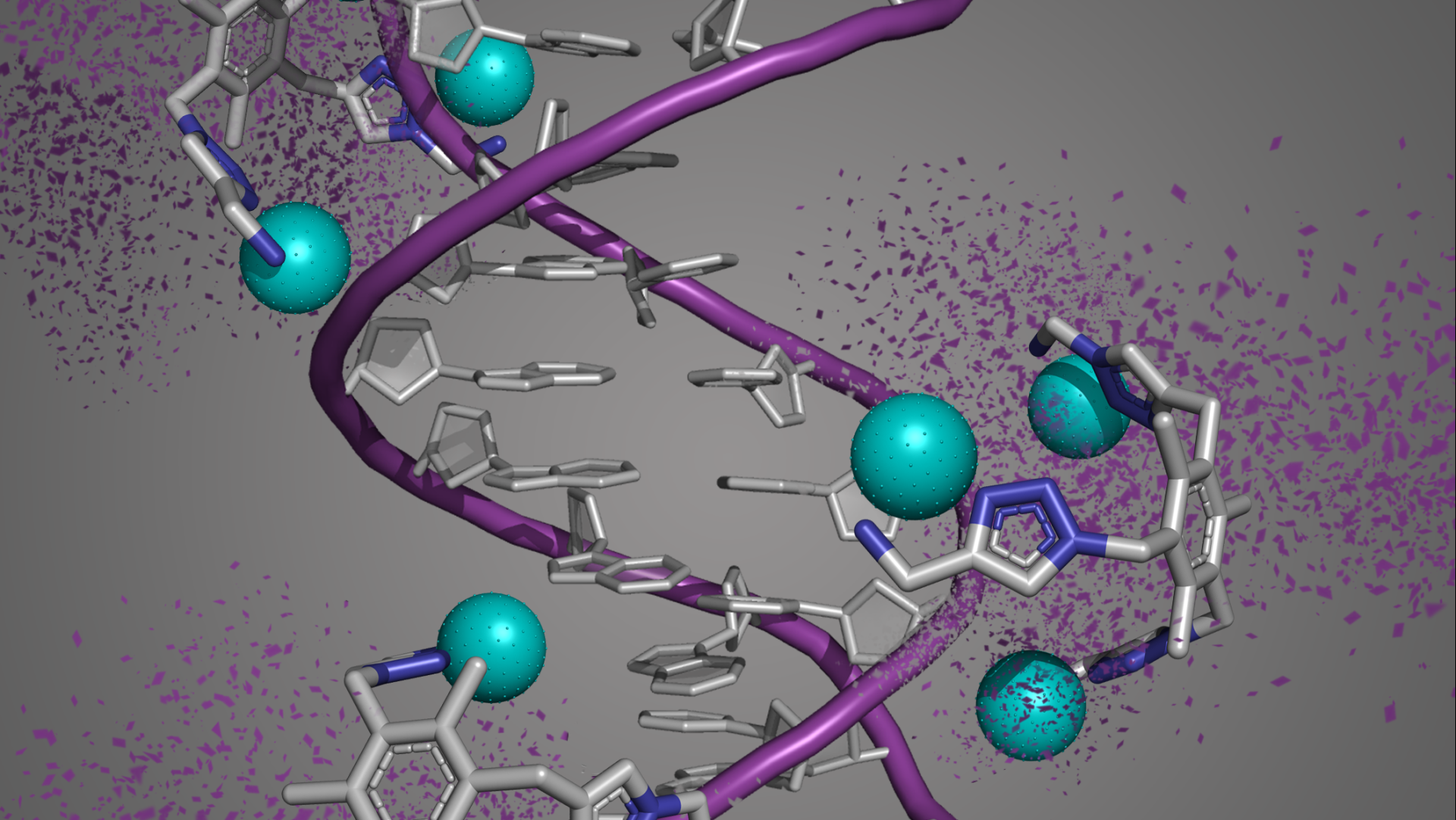

DCU researchers discover new method to provide effective DNA damaging cancer treatments
Researchers at Dublin City University and Chalmers University of Technology (CUT), Sweden, have discovered a new method to prepare DNA damaging drug molecules. The long-term goal of the work aims to provide effective new personalised cancer treatments with lower side effects.
The method is called ‘Click and Cut’ and involves the attachment of metal ion binding groups to a central scaffold using click chemistry. Using this approach, the team prepared a library of drug candidates and identified a lead agent with high potential for treating human cancer.
Metal-based drugs deliver first-line treatment against many forms of cancer, but resistance often builds up leading to their inactivation. To widen treatment possibilities, particularly against difficult-to-treat cancers such as triple-negative breast cancer or glioblastoma multiforme, new therapies with improved or evasive modes of action are highly sought after.
To address this challenge, a DCU team of researchers led by Dr. Andrew Kellett developed the ‘Click and Cut’ method and screened the resulting drug library together with different types of metal ions. From the entire screen, one compound was identified to bind strongly with copper ions and produce a unique type of DNA damage that is not possible to achieve with existing metal-based drugs.
In collaboration with Prof. Fredrik Westerlund and his team at CUT, the compound was then identified to produce DNA damage within primary human cells. By isolating the DNA from these cells, single molecule imaging was performed to visualise the amount of damage and the type of DNA repair (base excision repair - BER) enzymes activated in response. The results were encouraging and showed the compound could produce a high amount of specific damage which placed it in a unique chemotherapeutic class.
Dr. Andrew Kellett, Associate Professor of Inorganic and Medicinal Chemistry in DCU School of Chemical Sciences, Principal Investigator of Biodesign Europe, and Funded Investigator of the SSPC and CÚRAM SFI Research Centres, is the corresponding author of the study. The paper “Click and Cut: A Click Chemistry Approach to Developing Oxidative DNA Damaging Agents” has just appeared in the journal Nucleic Acids Research and is an open access publication.
Speaking about the discovery, Dr. Andrew Kellett said:
“These results are promising and indicate a new avenue for preparing unique types of drug molecules. Although click chemistry has an extensive range of applications—particularly in the field of nucleic acid chemistry—it has not yet been widely considered as a way to construct DNA-damaging metallodrugs.”
The research team now aims to expand this method and develop new therapies directed to specific cancer-causing genes. Plans are also underway to develop second generation chemotherapeutics with improved properties.
About Biodesign Europe
Biodesign Europe combines the research strengths of Dublin City University and Arizona State University, two leading institutions striving to make much-needed scientific discoveries and innovations available to advance society. Inspired by nature’s design, particularly at the intersection of engineering, biology and computing, our scientific discoveries and innovations are being directed towards the areas of human health, community safety and global sustainability.
About SSPC
The Science Foundation Ireland Research Centre for Pharmaceuticals, SSPC, is a world-leading hub of Irish research expertise developing innovative technologies to address key challenges facing the pharmaceutical and biopharmaceutical industry.
About CÚRAM
CÚRAM, the SFI Research Centre for Medical Devices, a world leading Science Foundation Ireland research centre designing the next generation of ‘smart’ medical devices.
